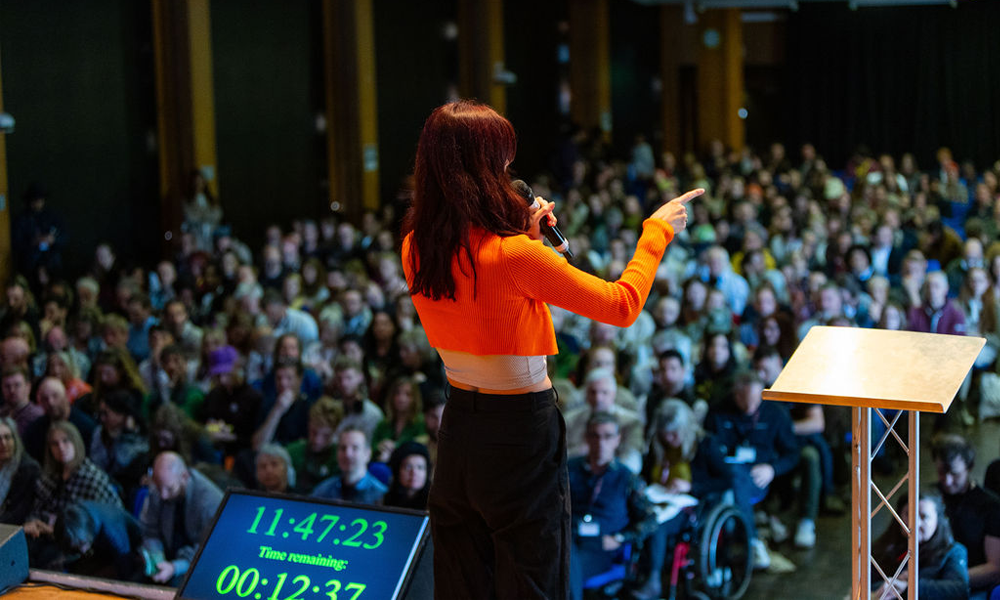Promoting Your Academic Conference: Tips to Maximise Attendance and Impact

Once your academic conference is planned and booked, the next step is ensuring the right people attend. Whether you’re inviting researchers, students, policy professionals or academic peers, strong promotion helps maximise attendance, raise your event’s profile, and broaden its impact.
Here are our top recommendations to help you spread the word and make your next academic event in Exeter a success.
Start with a Clear Audience and Purpose
Before diving into promotion, take time to define your core audience. Are you targeting:
- Fellow researchers from your discipline?
- Postgraduate students or early-career academics?
- Policy-makers, professionals, or interdisciplinary collaborators?
Clarifying your audience helps shape the tone, messaging, and promotional channels you’ll use - and ensures your outreach resonates with the right people.
For support on the early planning stages, see our blog on Planning an Academic Conference in Exeter.
Use Internal University Networks First
If you’re affiliated with a university, take advantage of internal communication channels to promote your academic conference. These platforms are often well-targeted and trusted by your core audience of students, academics, and researchers.
Start by adding your event to your university’s own events calendar or listings page. These are often one of the most-visited internal resources.
For example, the University of Exeter University Events Calendar showcases a wide range of academic, research, and public events.
You can also:
- Share details with relevant faculties and departments for inclusion in newsletters or mailing lists
- Post to internal platforms like staff bulletins, postgraduate networks, or university intranets
- If you’re hosting your event at Exeter, speak to the Event Exeter team to explore how our research conference services can support your promotion strategy
Even if you’re running your event independently or off-site, using university networks - where available - can provide a valuable boost to visibility and attendance.
Create a Clear, Search-Friendly Event Page
Your event landing page should make it easy for potential attendees to understand what the conference is about, who it’s for, and how to register.
Make sure it includes:
- A compelling event summary and theme
- Key dates, speaker highlights, and session details
- Venue location and travel information (see our venues)
- A simple, mobile-friendly registration form
Optimise your content with phrases like “academic conference in Exeter” to improve visibility in search engines and academic discovery platforms.
Make the Most of Social Media
Social media is a great way to amplify your message. Use platforms like LinkedIn and X (formerly Twitter) to build awareness before, during, and after your event.
Tips include:
- Creating branded graphics with the event name, date, and speaker photos
- Tagging speakers, institutions, and sponsors to increase reach
- Using relevant hashtags such as #AcademicTwitter or #HigherEdEvents
- Posting a countdown to build excitement
You can also share behind-the-scenes photos, short speaker interviews, or teaser posts to maintain momentum.
Tap Into Mailing Lists and Professional Networks
To promote your conference beyond your immediate institution, take advantage of wider academic and professional communities:
- Newsletters and websites of academic societies, journals, or research centres
- Personal invites to previous event attendees, collaborators, or department contacts
- Peer-to-peer outreach from confirmed speakers, chairs, or senior academics
- LinkedIn groups and professional networks, especially those aligned to your discipline or theme
Academic LinkedIn groups and society pages can be powerful tools for reaching new audiences, sharing event links, and driving organic interest - particularly when your speakers and collaborators help amplify the message.
A well-written save-the-date email sent early, followed by a formal invite closer to the event, can also help drive consistent engagement across multiple channels.
Encourage Pre-Event Sharing and Engagement
Your attendees can help you promote too. Provide resources that are easy to share in advance, such as:
- A digital delegate pack with programme highlights
- Suggested posts or hashtags for social media
- Links to relevant content like our blogs on 7 Interesting Places to Visit Near Exeter or Creating a Great Delegate Experience
These resources help attendees feel part of the event and can significantly extend your reach.
Monitor Performance and Stay Agile
Track what’s working using tools like Google Analytics, social media insights, or email platform stats. Look at:
- Registration sources (e.g. email vs social)
- Page views and bounce rates on your event page
- Post engagement and click-throughs
Adapt your approach based on what performs well. This insight will also help inform your future event marketing strategy.
Keep the Momentum Going Post-Event
Promotion shouldn’t stop once your final session ends. Continue to drive visibility by:
- Sharing photos, quotes, or presentation summaries
- Thanking delegates and speakers publicly
- Posting reflections or recorded keynotes where appropriate
This helps reinforce your brand and builds interest for future events. For advice on what makes a memorable event, see our blog on Creating a Great Delegate Experience at Your Academic Conference in Exeter
Ready to Make Your Conference Stand Out?
Whether you're in the early planning stages or looking for ways to maximise visibility, we’re here to help.
Visit our Academic and Research Conferences page to learn more, or get in touch with our team to start planning your next academic event in Exeter.
